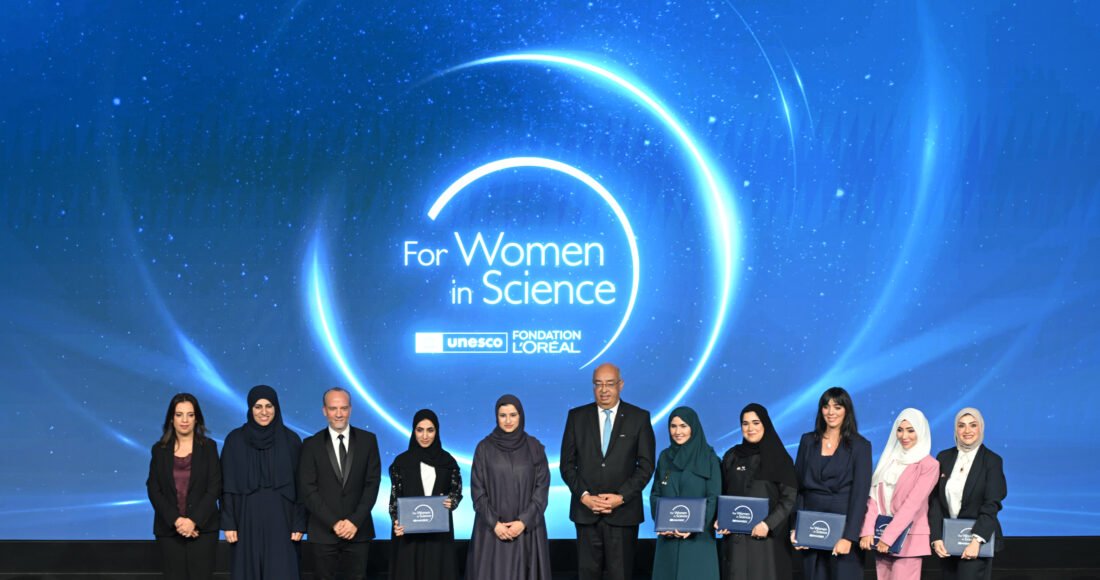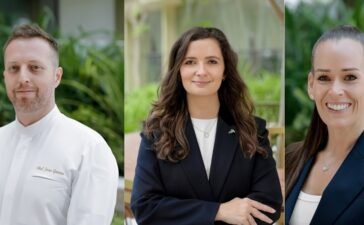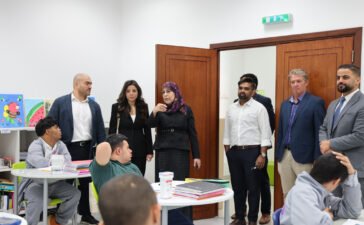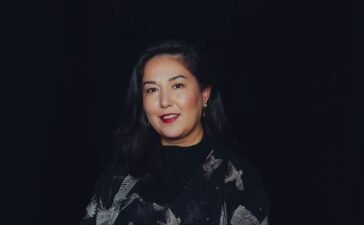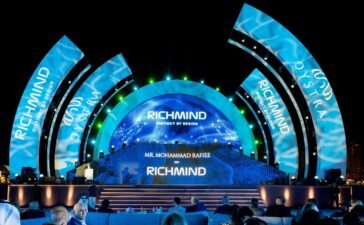- The 12th edition of the L’Oréal-UNESCO For Women in Science Middle East Regional Young Talents Program celebrates Arab women driving innovation in STEM
- From climate change and cardiovascular health to aerospace robotics and food security, the winners are advancing pioneering research that tackles some of the world’s most pressing challenges
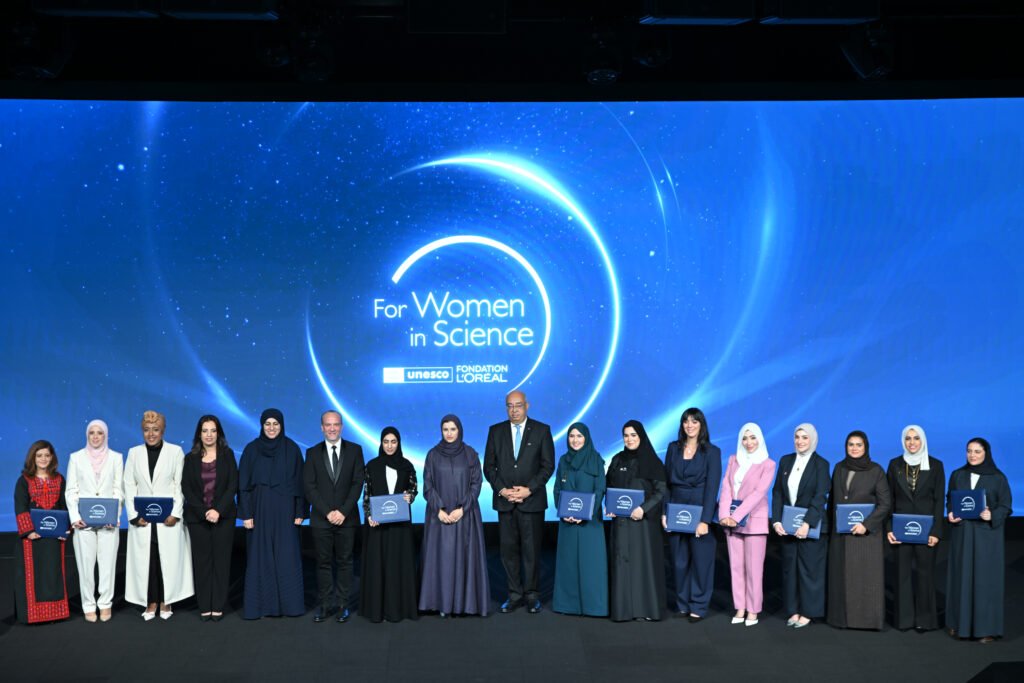
The L’Oréal-UNESCO For Women in Science Middle East Regional Young Talents Program, in partnership with Khalifa University of Science and Technology, marks its 12th edition by honoring twelve remarkable Arab female scientists, whose pioneering research is shaping the region’s scientific future.
A flagship initiative in the region, the program recognizes the groundbreaking work of Arab females in areas of Science, Technology, Engineering, and Mathematics (STEM) whose discoveries address urgent challenges and inspire future generations. Globally, since its launch in 1998, the L’Oréal-UNESCO For Women in Science program has celebrated more than 4,700 researchers from over 140 countries and associated territories – with 63 researchers from the Gulf Cooperation Council (GCC), awarding a total of AED 3.8M in endowments to advance their research.
Yet, progress remains uneven: today, women still account for only one third of researchers worldwide, according to UNESCO data[1].
By celebrating scientific excellence and advancing women’s empowerment, the regional edition of the program not only addresses this imbalance but also supports GCC national agendas that prioritize innovation, knowledge economies, and sustainable progress.
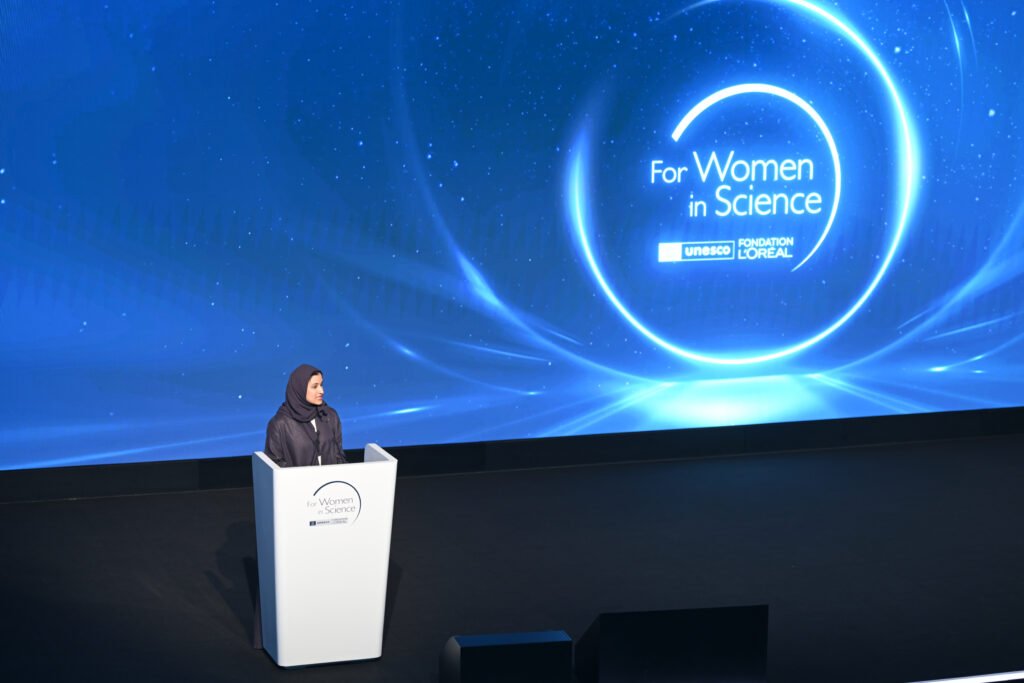
Her Excellency Sarah Al Amiri, UAE Minister of Education, commended the program’s long-standing commitment to empowering women. She reiterated her support to the program over the past seven years, as it has become a cornerstone in advancing the role of women in science.
Her Excellency Al Amiri added: “The program not only elevates scientific excellence but also reinforces the region’s commitment to building knowledge-based, innovative, and resilient societies. Supporting women scientists is not just about recognition – it is about unlocking the full potential of our region’s human capital and ensuring that science continues to serve as a driver of societal advancement.”
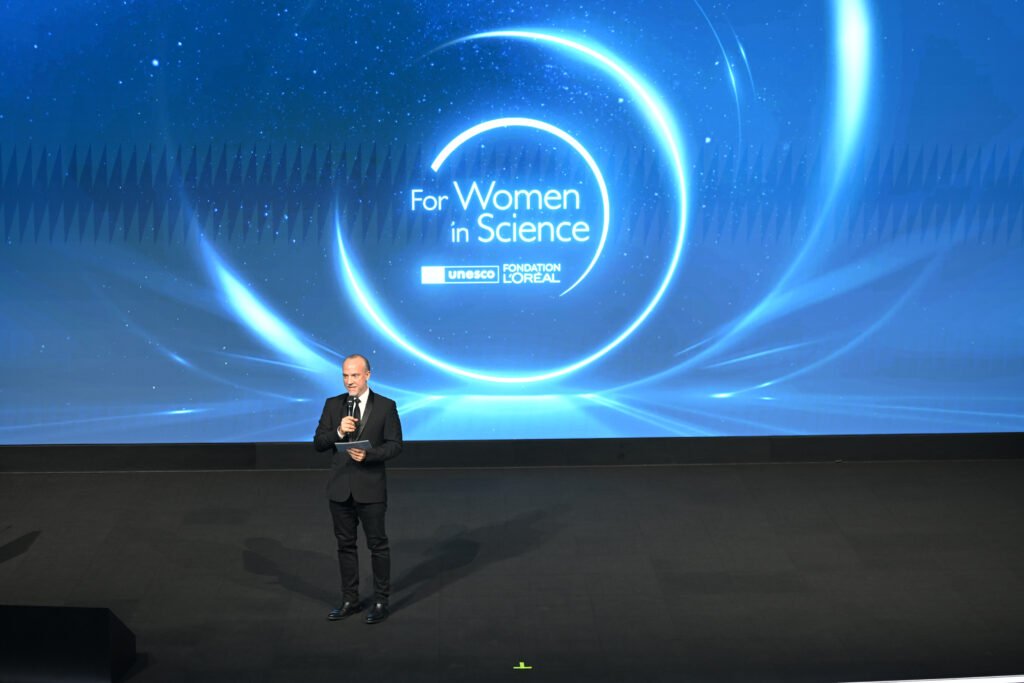
Reflecting on the importance of supporting such work, Laurent Duffier, Managing Director of L’Oréal Middle East, said: “By amplifying the voices of Arab female researchers for over 12 years, the program did not only strengthen regional innovation but also accelerated the advancement of science on a global scale. The program highlights the profound impact these researchers continue to make across disciplines – from pioneering breakthroughs that address real-world challenges to inspiring the next generation of changemakers. Empowering women in science is not just a moral imperative; it is a catalyst for transformative change, fueling innovation, and shaping a lasting legacy of progress across the region.”
Salah Khaled, Director of UNESCO, Doha Office for Gulf States and Yemen said: “UNESCO has long championed the advancement of women in science as a pillar of sustainable development. The L’Oréal-UNESCO For Women in Science Middle East Program demonstrates how empowering women researchers not only strengthens national innovation agendas but also contributes to global scientific progress. We are proud to stand alongside our partner L’Oréal in supporting these outstanding scientists who are shaping a more resilient and equitable future.”
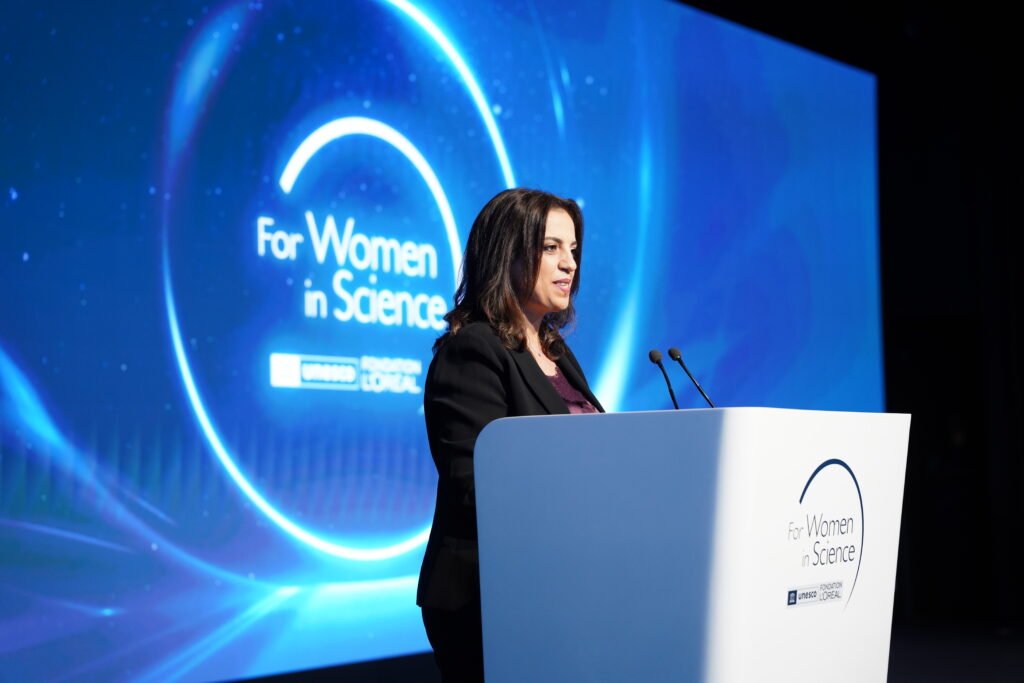
Academic leaders have also reinforced the program’s impact, as His Excellency Prof. Ebrahim Al Hajri, President of Khalifa University of Science and Technology, remarked: “We are proud to partner with the L’Oréal-UNESCO For Women in Science Middle East Program for the seventh consecutive year – a vital platform advancing equal opportunities and elevating women in STEM. At Khalifa University, women researchers are using science to make a tangible difference, from developing cleaner energy and improving health and sustainability to shaping the future of space and AI. By championing their talent, we invest in a future where women are not only driving discovery and research but also creating opportunities, industries, and impact that strengthen our region’s innovation economy.”
The young female scientists demonstrate the diversity and depth of scientific research emerging from the Arab world, tackling some of the most pressing global and regional challenges – from aerospace robotics, climate change resilience and sustainable agriculture to chronic disease prevention and autism research. Collectively, their work reflects the program’s mission: to recognize and empower women whose contributions in STEM are not only pushing the boundaries of discovery but also developing practical solutions with the power to transform everyday lives.
The twelve outstanding scientists recognized for their groundbreaking research are:
2025
PhD students:
- Aysha Ali Samra AlShehhi (United Arab Emirates) – For her research on revolutionizing aerospace maintenance with a bio-inspired robotic arm for in-situ inspection and repair of aero-engines.
- Fatimah Abdulhakim (Saudi Arabia) – For her research on harnessing plant immunity to strengthen global food security and crop resilience.
- Ohood Al-Ghadani (Oman) – For her research on optimizing packaging design to reduce post-harvest loss and strengthen food security.
Post-doctorate researchers:
- Dr. Nadine Hosny El Said (United Arab Emirates) – For her research on harnessing epigenetic science and RNA-based therapies to revolutionize patient care.
- Dr. Ayat Hammad (Qatar) – For her research on unlocking disease prevention and treatment through personalized medicine and microbiome.
- Dr. Fatemah Jawad Bahman (Kuwait) – For her research on uncovering the genetic links between diet, inflammation, and metabolic disease.
2024:
PhD students:
- Fatima Alshamsi (United Arab Emirates) – For her research on identifying genes promoting endothelial cell dysfunction in diabetic cardiovascular complications.
- Dr. Israa Al Hussain Al Hassan Othman (United Arab Emirates) – For her research on the development of quantum dots (QDs) and their nanocomposites for photocatalytic applications.
- Dr. Taiba Alamoudi (Saudi Arabia) – For her research on the impacts of climate change and the biotechnological potential of seaweed.
Post-doctorate researchers:
- Dr. Leena Ali Ibrahim (Saudi Arabia) – For her research on autism’s link to layer 1 inhibitory neurons: identifying the genes and circuits that lead to hypersensitivity.
- Dr. Entessar Al-Hetlani (Kuwait) -For her research on using deep UV Raman spectroscopy to identify bodily fluids in fingermarks.
- Dr. Hiam Souheil Chemaitelly (Qatar) – For her research on epidemiology of respiratory infections and effectiveness of interventions.
Prof. Marie Abboud, the program’s newly appointed jury president, said: “As both a former winner and long-standing jury member, I have witnessed firsthand the extraordinary impact Arab women researchers are making across disciplines. Serving as jury president this year has been a profound privilege — a reminder of the exceptional scientific talent, creativity, and perseverance that define the GCC region. The L’Oréal-UNESCO For Women in Science Middle East program continues to demonstrate how recognition and opportunity can unlock innovation and empower women to shape the scientific future of our societies. I am deeply inspired by the winners — their dedication, their courage, and their commitment to using science as a force for progress and hope for generations to come.”
The 12th edition was guided by a distinguished jury of leading scientists from across the Middle East, including Prof. Marie Abboud (Saint Joseph University, Lebanon), Dr. Habiba Al Safar (Khalifa University, United Arab Emirates), Dr. Maha Al Mozaini (Research, Development & Innovation Authority, Saudi Arabia), Dr. Saba Al Heialy (Mohammed Bin Rashid University of Medicine and Health Sciences, United Arab Emirates), Dr. Maha Alsabbagh (Arabian Gulf University, Bahrain), Prof. Fatma Taher (Zayed University, United Arab Emirates), Prof. Abeer AlBawab (The University of Jordan, Jordan), and Prof. Rihab Nasr (American University of Beirut, Lebanon).
Rooted in the ethos “The world needs science, and science needs women,” the program continues to champion inclusivity in STEM and highlight women’s indispensable role in shaping a more sustainable future.

